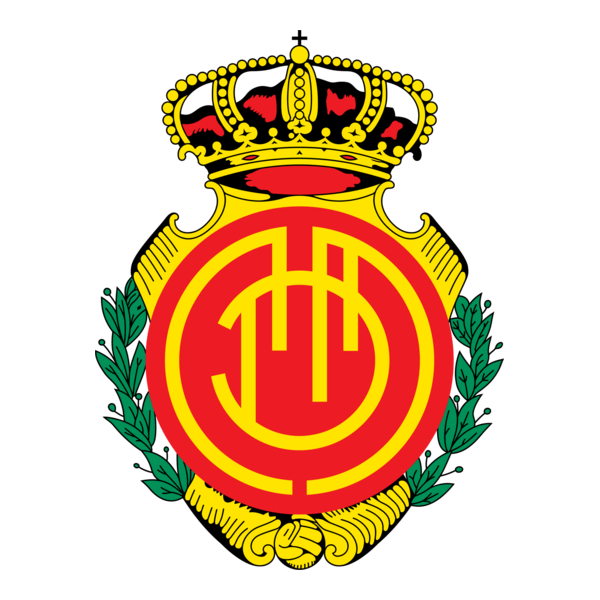Real Club Deportivo Mallorca
|
|
RCD Mallorca — History, Identity, Golden Eras & Island Pride
Foundation — The Birth of Balearic Football (1916)
RCD Mallorca was founded on 5 March 1916 under the original name Alfonso XIII FBC. Football was still new in Spain, and the Balearic Islands were far from the sport’s main centers, but local enthusiasts quickly turned the club into the key representative of Mallorcan football. In 1931, after the proclamation of the Second Spanish Republic, the club changed its name to Club Deportivo Mallorca, and later received the “Real” title again, becoming Real Club Deportivo Mallorca.
Early Decades — Regional Competitions & Growing Identity
During the first half of the 20th century, Mallorca competed mainly in regional and lower national divisions. Travel from the islands to the mainland was expensive and complicated, so every away match represented a major effort. Despite these limitations, the club steadily gained strength, built a loyal fan base in Palma, and became the sporting reference for the entire Balearic archipelago.
Climbing the Pyramid — Towards La Liga (1960–1980)
In the 1960s and 1970s, RCD Mallorca began stabilizing itself in the professional structure of Spanish football, moving between Segunda División and Segunda B. The club’s ambition was always clear: to consolidate its place in the top tiers, despite economic challenges and the extra cost of being an island team. These decades forged the club’s identity of persistence and resilience.
First La Liga Stays & Growing Ambition (1980–1990s)
From the 1980s onward, Mallorca achieved several promotions to La Liga and began to be recognized as a serious, competitive top-flight club. Although relegations still occurred, each return to Primera División was met with growing excitement among the fans. The club’s structure, scouting, and stadium facilities kept improving, laying the groundwork for the golden era that was to come.
A New Home — Estadi de Son Moix / Visit Mallorca Estadi
In 1999, Mallorca moved into the modern Estadi de Son Moix, previously built for the 1999 Summer Universiade. Over time, the stadium became known as the Visit Mallorca Estadi through sponsorship agreements. With bigger capacity and better infrastructure, this ground allowed the club to dream bigger, both domestically and in Europe.
Golden Era — European Nights & Copa del Rey Glory
The late 1990s and early 2000s marked the greatest era in Mallorca’s history. Under coaches like Héctor Cúper and Luis Aragonés, the team reached new heights in both Spain and Europe.
Key achievements of this period include:
• Copa del Rey Final 1991
• Copa del Rey Final 1998
• UEFA Cup Winners’ Cup Final 1999
• Third place in La Liga 2000–01
• Copa del Rey champions 2002–03
Star players such as Samuel Eto’o, Diego Tristán, Ariel Ibagaza, Albert Luque, and Dani García made Mallorca one of the most exciting sides of the era. The Copa del Rey triumph in 2003, led by Eto’o, remains the highlight of the club’s trophy cabinet.
Crisis, Administration & Drop to Segunda B
After the golden years, financial mismanagement, debt, and sporting instability pushed Mallorca into serious crisis. The club went into administration, suffered relegation from La Liga in 2013, and, even worse, dropped to Segunda División B (third tier) in 2017.
For many clubs, this would have been the end; but Mallorca’s fans and new ownership turned this low point into the beginning of a remarkable comeback story.
Back from the Bottom — The Epic Double Promotion (2017–2019)
Under new project leadership and coaching from Vicente Moreno, Mallorca achieved something extraordinary:
• Promotion from Segunda B to Segunda in 2018
• Promotion from Segunda to La Liga in 2019
Two promotions in two seasons brought the club from the third tier back to the top flight, in front of an emotional Son Moix crowd. This comeback became one of the most inspiring stories in modern Spanish football.
Modern Mallorca — Defensive Solidity & New Ambitions
In recent seasons, RCD Mallorca has focused on building a solid, competitive La Liga side, often characterized by strong defensive structure, dangerous counter-attacks, and a passionate home atmosphere. The club continues investing in stability, youth development, and gradual growth while keeping its identity as the proud representative of the Balearic Islands.
Mallorca Identity — Island Pride, Resilience & Passion
RCD Mallorca stands for:
• Island identity and community pride
• Resilience through crisis and rebirth
• Passionate, loyal fan base
• Courage to compete against bigger mainland clubs
From local beginnings in Palma to European finals, Mallorca’s story is proof that even a club far from the big football capitals can write its name into history through effort, vision, and heart.

The RCD Mallorca crest features the royal crown above a circular shield with red and yellow elements, representing both the club’s royal status and the traditional colors of the Balearic region.
